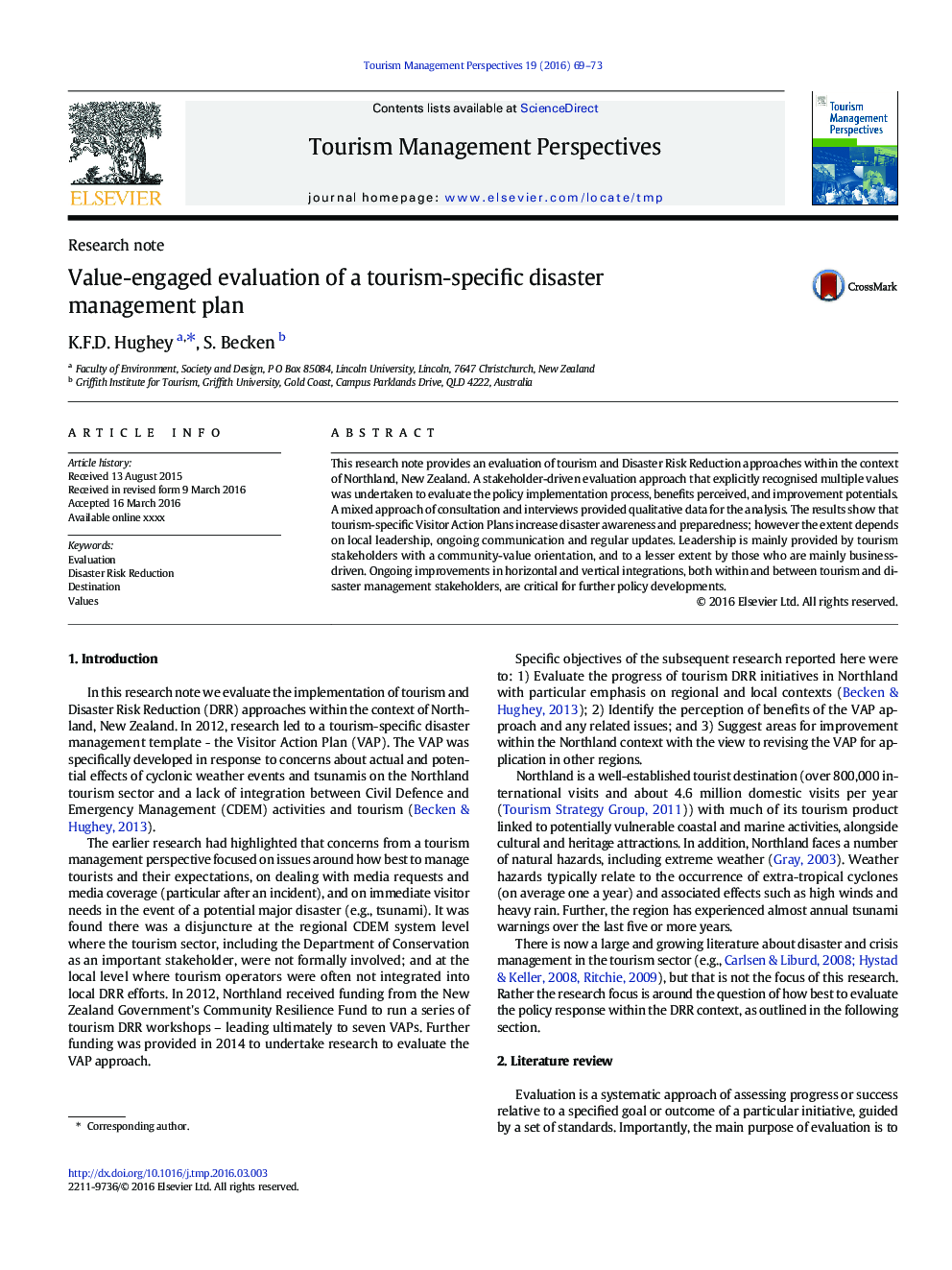| Article ID | Journal | Published Year | Pages | File Type |
|---|---|---|---|---|
| 10491089 | Tourism Management Perspectives | 2016 | 5 Pages |
Abstract
This research note provides an evaluation of tourism and Disaster Risk Reduction approaches within the context of Northland, New Zealand. A stakeholder-driven evaluation approach that explicitly recognised multiple values was undertaken to evaluate the policy implementation process, benefits perceived, and improvement potentials. A mixed approach of consultation and interviews provided qualitative data for the analysis. The results show that tourism-specific Visitor Action Plans increase disaster awareness and preparedness; however the extent depends on local leadership, ongoing communication and regular updates. Leadership is mainly provided by tourism stakeholders with a community-value orientation, and to a lesser extent by those who are mainly business-driven. Ongoing improvements in horizontal and vertical integrations, both within and between tourism and disaster management stakeholders, are critical for further policy developments.
Related Topics
Social Sciences and Humanities
Business, Management and Accounting
Tourism, Leisure and Hospitality Management
Authors
K.F.D. Hughey, S. Becken,
